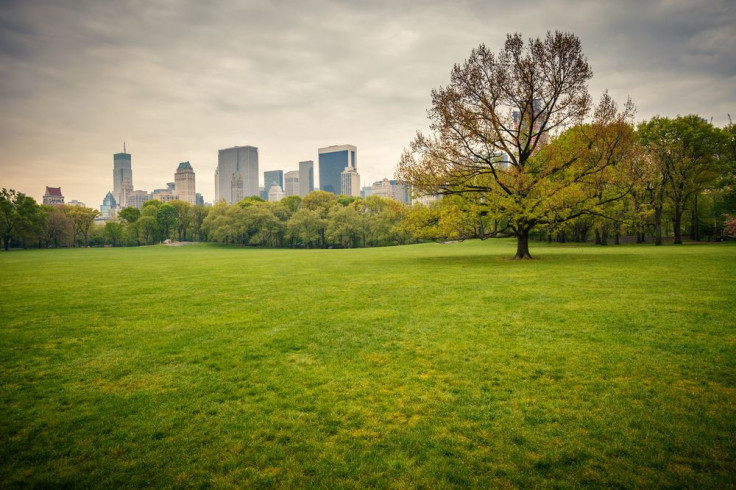Parks And Greenery Tied To Improved Mental Health In City-Dwellers

New Yorkers who claim that Central Park keeps the city sane may have been right all along. In a new study from the University of Exeter Medical School, researchers show that individuals who move closer to green spaces in urban areas tend to exhibit an improvement in mental health. The findings could come to benefit urban planning and public health recommendations.
Population data suggests that parks and greenery can have a tremendous impact on the well-being of nearby residents. However, little research has been conducted on this relationship. The new study, which is published in the journal Environmental Science & Technology, sought to investigate the link by looking at data from the British Household Panel Service –– an exhaustive repository of data gathered from households across the UK.
According to lead author Ian Alcock, the results suggest that the benefits of green space are both immediate and lasting. "We've shown that individuals who move to greener areas have significant and long-lasting improvements in mental health,” he said in a press release. “These findings are important for urban planners thinking about introducing new green spaces to our towns and cities, suggesting they could provide long-term and sustained benefits for local communities."
For the study, the researchers examined data from 1,000 participants. Each subject had either moved to a greener urban area or relocated to a less green urban area.
The team found that individuals who moved to a greener area experienced an immediate improvement in mental health that was sustained for at least three years. Conversely, individuals who moved to less green urban areas exhibited a momentary drop in their mental health. These relationships persisted after the researchers controlled for income, employment, education, and other factors known to influence well-being.
Preempting Mental Illness With Fresh Air
Today, U.S. health officials estimate that one in 10 American adults reports symptoms of depressive disorders. The average age of onset is 32. The problem persists on a global level; according to the World Health Organization, depression is currently the leading cause of disability worldwide.
Aside from giving city-dwellers a reason to go green, the results of the current study could also help improve public health strategies, as they provide a closer look at the psychological mechanism whereby urban greenery soothes the minds of residents. "We needed to answer important questions about how the effects of green space vary over time,” co-author Mathew White told reporters. “Do people experience a novelty effect, enjoying the new green area after the move, but with the novelty then wearing off? Or do they take time to realise the benefits of their new surroundings as they gradually get to know local parks? What we've found suggests that the mental health benefits of green space are not only immediate, but sustainable over long periods of time."
Source: Alcock I, White MP, Wheeler BW, Fleming LE, Depledge MH. Longitudinal Effects on Mental Health of Moving to Greener and Less Green Urban Areas. Environmental Science & Technology. 2013.



























